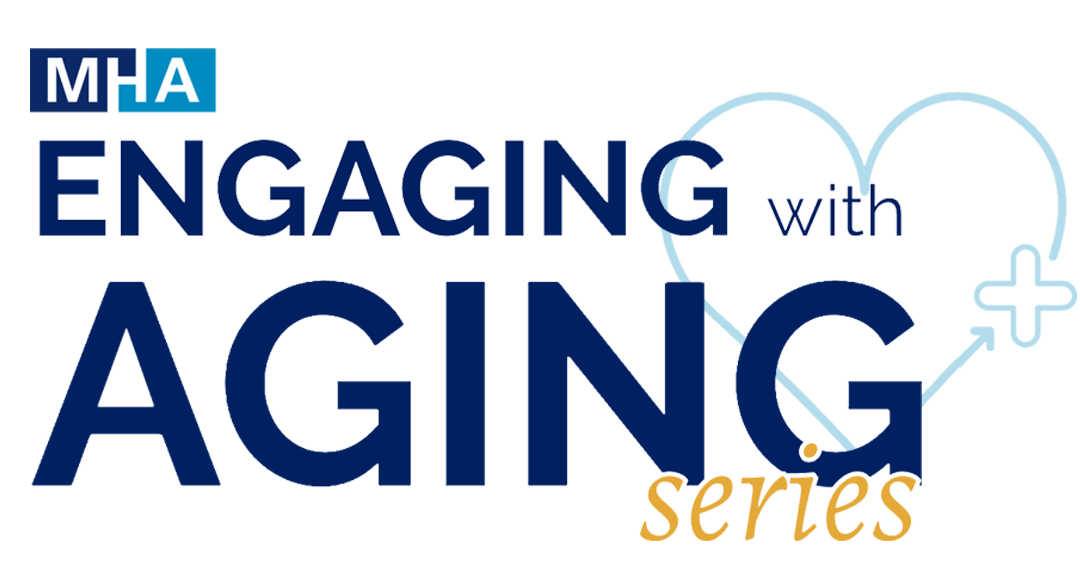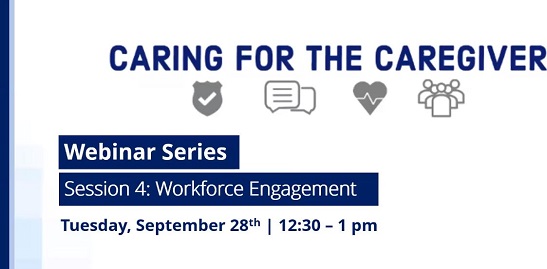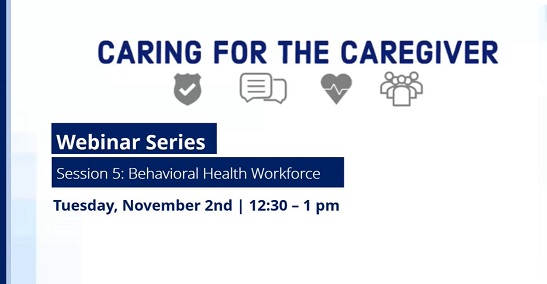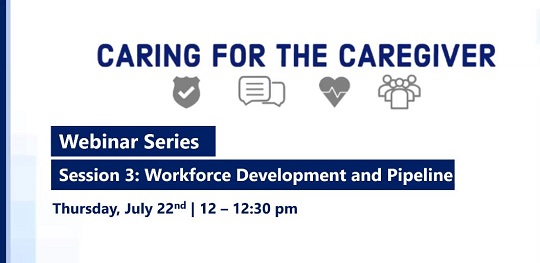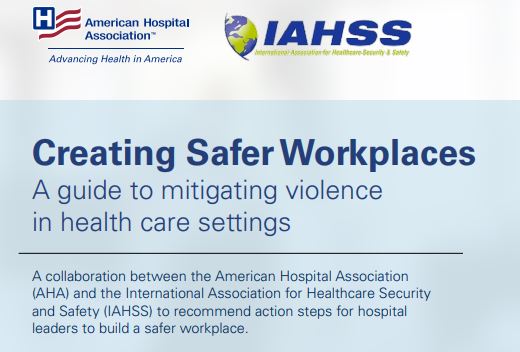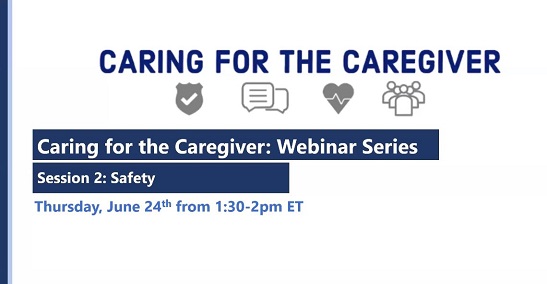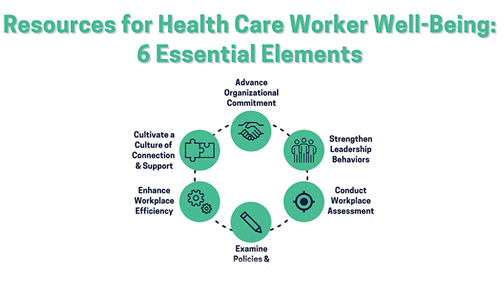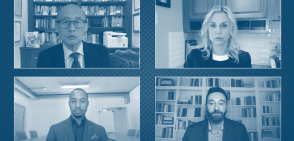In this installment of the Engaging with Aging Series, MHA and healthcare leaders lead an informative session on Alzheimer’s disease and related dementias. By watching this webinar, you will gain an overview of Alzheimer’s disease and related dementias in the U.S. and Massachusetts, learn current guidelines for the diagnosis and treatment of Alzheimer’s and related dementias, and explore best practices for care and management of patients with Alzheimer’s and related dementias.
Author: admin
Caring for the Caregiver: Workforce Engagement
Recorded webinar available here…
Caring for the Caregiver: Behavioral Health Workforce
Recorded webinar available here…
Caring for the Caregiver: Workforce Development and Pipeline
Recorded webinar available here…
Creating Safer Workplaces
Overview:
Hospital and health system leaders who continually emphasize the importance of physical and psychological well-being promote cultures that heighten safety in their organizations. They embed procedures into daily operations to instill a safety mindset at all levels, entrench security and safety functions in their enterprise strategies, and design their organizations to maximize safety. They also collaborate broadly and creatively across their institutions to prioritize these efforts.
As part of this guide, we offer leaders and implementers case studies that exemplify how a range of organizations have addressed workplace violence using both best practices and individual solutions that can be tailored based on an organization’s size, resources and culture.
Safe Patient Handling
Overview:
One major source of injury to healthcare workers is musculoskeletal disorders (MSDs). In 2017, nursing assistants had the second highest number of cases of MSDs. There were 18,090 days away from work cases, which equates to an incidence rate (IR) of 166.3 per 10,000 workers, more than five times the average for all industries. This compares to the all-worker days-away from work rate of 30.5 per 10,000 workers.
Caring for the Caregiver: Webinar Series, Safety – Session 2
Recorded webinar available here…
NAM launches AHA-supported resource compendium for health care worker well-being
NAM launches AHA-supported resource compendium for health care worker well-being. The National Academy of Medicine today launched Resource Compendium for Health Care Worker Well-Being, which highlights tools that are ready to be deployed and strategies to address systems issues related to health care workers’ burnout. The compendium, which is a product of the Action Collaborative on Clinician Well-Being and Resilience, of which AHA is a participant, organizes resources into six essential elements: advancing organizational commitment; strengthening leadership behaviors; conducting workplace assessments; examining policies and practices; enhancing workplace efficiency; and cultivating a culture of connection and support.
Building Workforce Resilience at the Individual and Organizational Levels
In August 2022, NEJM Catalyst published a case study from Houston Methodist, outlining how the organization “has endeavored to improve the resilience of its health care workforce by using an innovative two-pronged approach to fix the systemic barriers to wellness and well-being, as well as to support individual employees in their work.”
More from the case study preview:
“Programs that began in 2018 became essential during the Covid-19 pandemic, which exacerbated existing strain and created unprecedented challenges for both health care systems and health care workers. Houston Methodist identified three specific initiatives as part of an integrated plan to address resiliency: positive psychology, mindfulness, and intensive rounding for resiliency (referred to as Comfort Rounds). Further, each initiative was designed to address resiliency, primarily or secondarily, at either the individual level or the organizational level, which creates the opportunity to promote uptake, reinforce sustainability, and enhance impact. Data collected on these programs have shown that they reduce stress effectively and make clinicians feel more supported by the organization and their leaders. In addition to the innovative integration of the initiatives, the novel rounding model is focused solely on resilience issues and includes a mental health professional.”
Roundtable Discussion: Caring for the Healthcare Workforce
In July of 2022, NEJM Catalyst held a roundtable discussion on “what health care organizations can do to effectively prevent clinician burnout and promote well-being.”
Panelists included:
- Bryant Adibe, MD, Sugarman Practitioner in Residence and Visiting Fellow, Kahneman-Treisman Center for Behavioral Science and Public Policy, Princeton University
- C. Virginia O’Hayer, PhD, Clinical Associate Professor, Department of Psychiatry and Human Behavior, Thomas Jefferson University Sidney Kimmel Medical College
- Baligh Yehia, MD, MPP, FACP, Senior Vice President, Ascension
- Thomas H. Lee, MD, MSc, Chief Medical Officer, Press Ganey Associates

